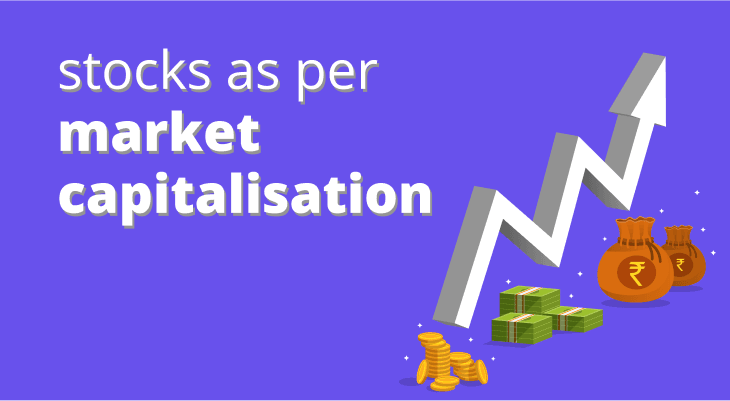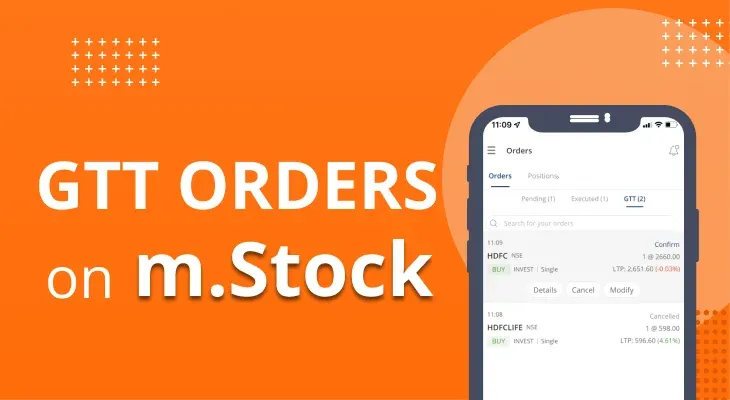
Table of content
- Understanding How Commodity Markets Operate
- Exploring the Various Types of Commodity Markets
- Tracing the History of Commodity Markets
- Examples of Commodity Markets
- Commodity Market Requirements
- Commodity Market Trading vs. Stock Trading
- Finding Real-Time Commodity Market Data
- Evaluating Commodities as an Investment Option
- Conclusion
Commodity Market in India - Meaning, Types & Functionality
The commodity market in India plays a vital role in the economy, offering investors and traders opportunities to diversify their portfolios. As such, understanding what the commodity market is, is essential for anyone looking to explore these investment avenues. This guide will delve into the types, history, and functionality of commodity markets, providing a comprehensive overview to help you navigate this trading segment. Whether you're interested in what commodity trading is or how commodity market trading differs from stock trading, this article covers all the basics you need to know.
Understanding How Commodity Markets Operate
Commodity markets in India are financial platforms where various commodities like metals, energy, and agricultural products are traded. These markets are crucial for both price discovery and risk management. Commodity market trading involves the exchange of commodities based on standardised contracts that specify the quantity, quality, and delivery date. The primary function is to facilitate the buying and selling of commodities through contracts.
It is important to note that commodity trading is different from stock trading, as it deals with physical goods rather than company shares. Understanding what commodities are is essential before venturing into this segment. They include raw materials like gold, silver, crude oil, and agricultural products like wheat and cotton. The prices of these commodities are influenced by factors such as supply and demand, geopolitical events, and weather conditions.
Exploring the Various Types of Commodity Markets
Commodity markets can be broadly classified into two main types: spot markets and futures markets.
Spot Markets
Spot markets are where commodities are bought and sold for immediate delivery. The transactions here are completed on the spot at the current prevalent market price. These markets are typically local and involve physical delivery of the commodity. Examples include cash foreign exchange (forex), local grain markets, livestock markets, and other daily trading markets for perishable goods.
Futures Markets
Futures markets involve trading contracts that promise the delivery of a commodity at a future date. These markets are highly regulated and involve standardised contracts. Futures trading is primarily used for hedging against price fluctuations and also for speculative purposes. Examples include Multi Commodity Exchange (MCX), National Commodity and Derivatives Exchange (NCDEX).
Understanding the difference between these markets is crucial for anyone interested in what commodity market trading entails.
Tracing the History of Commodity Markets
The history of commodity markets can be traced back to ancient times when barter systems were prevalent. In the absence of a fixed currency, goods and services were exchanged directly for other goods and services without the use of money. This system laid the groundwork for the modern commodity market as people began to recognise the value of certain goods, such as grains, livestock, and precious metals, as standard items of trade. Over time, the need for a more organised and standardised system led to the development of commodity markets, where these goods could be traded more efficiently and with greater transparency.
In India, it is widely believed that organised commodity trading started with the establishment of the Bombay Cotton Exchange in 1875. Over the years, the commodity markets have evolved significantly:
Early Trading
Initially, trading was informal and unregulated. Commodities like cotton and jute were the primary focus.
Regulation And Expansion
Post-independence, the government established regulations to formalise and expand commodity trading. The Forward Markets Commission (FMC) was set up in 1953 to oversee and regulate these markets.
Modern Era
The introduction of electronic trading platforms like MCX and NCDEX revolutionised the commodity markets. These exchanges brought transparency, efficiency, and increased participation from retail investors.
Examples of Commodity Markets
Commodity markets encompass a wide range of products. Here are some examples of commodities traded in these markets:
Metals
Gold, silver, copper, and aluminium are some of the prominent metals traded. These commodities are often seen as a hedge against inflation.
Energy
Crude oil, natural gas, and coal are vital energy commodities. Their prices are influenced by global supply-demand dynamics and geopolitical events.
Agricultural Products
Wheat, rice, cotton, and sugar are common agricultural commodities. Weather conditions and seasonal changes significantly impact their prices.
Livestock
Commodities like live cattle and pork bellies fall under this category. These are primarily traded in futures markets.
Understanding what commodities are in stocks is essential for grasping the scope of commodity markets.
Commodity Market Requirements
To participate in commodity trading, certain requirements must be met:
Understanding Of The Market
Knowledge: You need a good grasp of what is commodity trading, including the types of commodities and their market dynamics.
Research: Regular market analysis and staying updated with news affecting commodity prices is crucial.
Financial Requirements
Capital: Adequate capital is necessary to start trading. This varies based on the type of commodities and the market conditions.
Margins: Futures trading involves margin requirements, where a percentage of the contract value must be deposited upfront.
Trading Account
Account Opening: You need to open a trading account with a broker or through a trading platform like MCX or NCDEX.
KYC Compliance: Fulfil the Know Your Customer (KYC) norms, including submitting necessary identification and address proof.
Commodity Market Trading vs. Stock Trading
Commodity market trading and stock trading have distinct characteristics. It is important to understand these differences before deciding if commodity trading is right for you. The table provided below captures the key variations between the two forms of trading.
Aspect | Commodity Market Trading | Stock Market Trading |
|---|---|---|
Definition | Trading of raw materials or primary agricultural products | Trading of shares of ownership in public companies |
Underlying Asset | Physical goods (e.g., gold, oil, wheat) | Corporate stocks and shares |
Market Participants | Producers, consumers, speculators, and hedgers | Retail investors, institutional investors, traders |
Market Nature | Typically involves futures contracts | Involves buying and selling of shares |
Regulation | Regulated by entities like SEBI and commodity exchanges | Regulated by entities like SEBI and stock exchanges |
Volatility | High, due to supply-demand factors, geopolitical events | Moderate to high, influenced by corporate performance |
Investment Horizon | Short-term (futures) and long-term (physical assets) | Short-term (day trading) to long-term (investing) |
Leverage | Often higher, allowing control of large positions with less capital | Usually lower, with strict margin requirements |
Price Influences | Weather, geopolitical tensions, supply chain disruptions | Company earnings, economic indicators, market sentiment |
Liquidity | Varies by commodity; generally lower than stocks | Generally higher, especially for large-cap stocks |
Trading Hours | Varies by exchange, often longer than stock markets. MCX has an end-to-end trading window from 09:00 to 23:30. | Fixed trading hours as per the stock exchange timings. 09:15 to 15:30. |
Contract Types | Futures, forwards, options, and spot contracts | Equity shares, options, and futures |
Settlement | Physical delivery or cash settlement | Primarily cash settlement |
Risk Factors | Market risk, credit risk, liquidity risk | Market risk, credit risk, operational risk |
Return Potential | Can be high due to volatility and leverage | Generally tied to company performance and market trends |
Hedging Opportunities | Widely used for hedging against price fluctuations | Limited; mainly through options and futures |
Accessibility | Requires knowledge of commodity-specific factors | More accessible to average investors |
Market Research | Focused on global supply-demand, geopolitical factors | Focused on company fundamentals, economic data |
Finding Real-Time Commodity Market Data
Keeping track of how the commodity markets are performing is essential for making informed trading decisions. Here are some ways to stay updated:
Financial News Websites
Websites like Bloomberg, Reuters, and Economic Times provide real-time updates on commodity prices and market trends.
Trading Platforms
Platforms like MCX and NCDEX offer live data feeds and market analysis tools.
Mobile Apps
Financial apps provide real-time commodity market updates and alerts, helping you stay informed on the go.
News Channels
Business news channels regularly broadcast updates on commodity prices and market movements.
Evaluating Commodities as an Investment Option
Investing in commodities can be a good diversification strategy. Here are some factors to consider:
Diversification
Commodities often move inversely to stocks and bonds, providing a hedge against market volatility.
Inflation Hedge
Commodities like gold and oil are seen as a hedge against inflation.
Global Demand
Rising global demand for commodities can lead to price appreciation.
Liquidity
Commodity markets offer high liquidity, enabling quick entry and exit.
Risk Factors
Commodities are highly volatile and can be influenced by unpredictable factors like weather and geopolitical events.
Remember, understanding what commodities are in the stock market and their investment potential is crucial for making informed decisions.
Conclusion
Commodity markets in India play a vital role in the economy, offering opportunities for diversification and risk management. Understanding what commodity trading is, the types of commodities, and how these markets operate can help you make informed investment decisions. By keeping track of market trends and understanding the unique characteristics of commodity trading, you can leverage these markets to achieve your financial goals.
FAQ
What is the commodity market?
The commodity market is a platform where raw materials like metals, energy, and agricultural products are traded through spot and futures contracts, facilitating price discovery and risk management.
What is commodity trading?
Commodity trading involves buying and selling physical goods or derivative contracts based on those goods, such as metals, energy products, and agricultural items, to profit from price movements.
What is commodity market trading?
Commodity market trading refers to the trading of commodity contracts, including spot and futures contracts, which help in hedging risks and speculating on price movements.
What are commodities in the stock market?
Commodities in the stock market are raw materials or primary agricultural products traded through commodity exchanges like MCX and NCDEX, rather than through traditional stock exchanges.
What are commodities?
Commodities are basic goods used in commerce that serve as the building blocks for more complex goods and services, including metals, energy products, and agricultural goods.
What are commodities in stocks?
Commodities in stocks refer to the tradeable physical goods or derivative contracts in the commodities market, distinct from shares or equity in companies.
How does commodity trading differ from stock trading?
Commodity trading deals with physical goods and their derivatives, influenced by global supply and demand, while stock trading involves company shares and is driven by corporate performance and market sentiment.
What is the difference between spot and futures commodity markets?
Spot markets involve the immediate delivery of commodities at current prices, while futures markets involve contracts for future delivery at predetermined prices, often used for hedging and speculation.
Are commodities a good investment?
Commodities can be a good investment for diversification and hedging against inflation, but they are highly volatile and influenced by factors like global demand and geopolitical events.
How can I stay updated on commodity market trends?
Stay updated on commodity market trends through financial news websites, trading platforms, mobile apps, and business news channels that provide real-time updates and market analysis.


